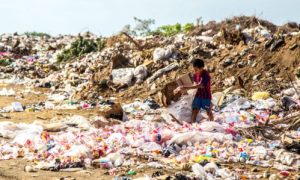Nouvelle
Call for submission | Special Rapporteur on toxics and human rights | The right to benefit from scientific progress and its applications (deadline 31 March)
The Special Rapporteur on the implications for human rights of the environmentally sound management and disposal of hazardous substances and wastes invites states, civil society actors, academics, business enterprises and all other interested parties to share views and relevant information, which could feed the upcoming thematic report on the right to benefit from scientific progress and its applications.
Information is critical to governmental, citizen and business action to confront toxic hazards and risks, and thus the right to information about hazardous substances is vital. As this information is technical in nature, science plays a key role in its production. Thus, respect for the integrity of scientific processes is a condition for respecting this vital right to information in the field of hazardous substances, as well as waste.
The Special Rapporteur on toxics and human rights plans to focus his first thematic report – to be presented at the 48th session of the Human Rights Council in September 2021 – on the interface between information, science, and hazardous substances and wastes. It will interrogate the elements of a rights-based approach to this interface, with a view to strengthening the tools for the production and communication of scientific knowledge, based on the respect for the integrity of scientific processes. The report will include, as appropriate, examples of assaults on science and scientists, and lay out government duties and business responsibilities in respect of the right to benefit from scientific progress and its applications. Ultimately, the discussion is expected to identify ways to bolster the science-policy interface.
In preparing for this report, the Special Rapport is gathering inputs from States and all interested stakeholders organizations, including civil society organizations, scientists, human rights defenders, and academics. Submissions will be open until 31 March 2021.

